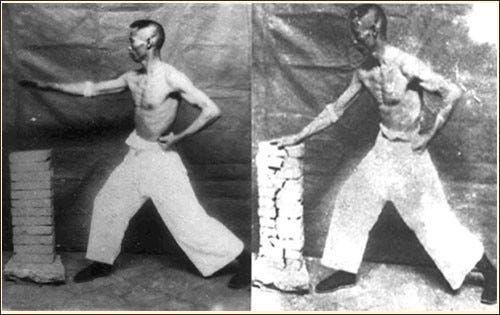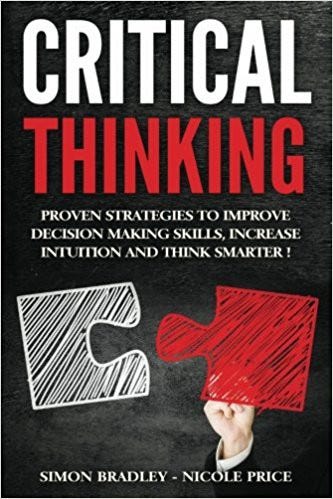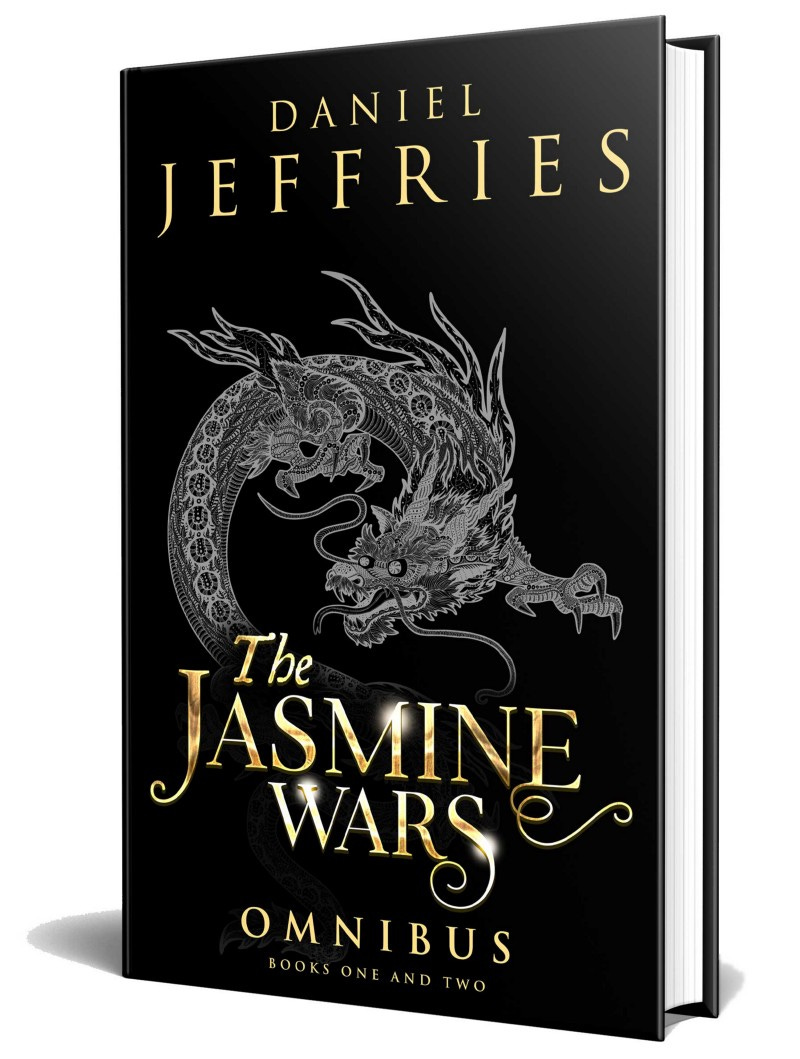Five Things I Learned from Master Investor, Chris Dixon
Some people leave a deep impact on everyone they meet. Philosopher, programmer and investor Chris Dixon was one of those folks for me. The…
Some people leave a deep impact on everyone they meet. Philosopher, programmer and investor Chris Dixon was one of those folks for me. The funny thing is, I’m pretty sure he doesn’t know it.
We haven’t spoken in many years so I never got to thank him (until now).
We met at one of my first jobs out of college. The dot-com bubble had just burst. I’d left a online games company that went belly up, having gone from buying up five office floors in a few months to selling everything in a fire sale only a year later.
I landed a job through a friend at a little web design company called Oddcast that was rapidly morphing into a media company. At the time, Dixon wasn’t the ultra successful master of the world he is today. He was a former philosophy major and self-taught programmer.
This may sound a little arrogant, but even in my early twenties I was used to being the smartest person in any room. When it came to Dixon though, it was immensely clear I was only the second smartest person (or maybe even the third after my buddy Charles Bennington, who forgot more about systems engineering than I’ll ever know.)
Some impacts on your life are immediately profound. My high school English teacher, Mr. Dawson, falls into that category. He taught me everything I know about critical thinking and how to tear into a book with a deep joy and a curious spirit.
Some impacts are much subtler.
You don’t know they’re having an effect on you at the time and it’s not until years later that you look back and realize you’ve thought about something someone said dozens of times for what seems like no reason at all.
That’s where Dixon comes in.
1) Always Get Both Sides of the Story
It’s no secret that I see critical thinking as the most essential skill for success in life.
Mr. Dawson used the term over and over again in my Dead Poets Society style English class, where we sat in a circle and talked freely and subversively about books as diverse as Shakespeare, Huck Finn and Robert Parker’s mysteries. Critical thinking slipped into my subconscious and took root there becoming a touchstone for my life’s work. Without it I couldn’t write books, design computer systems or whip up these little articles.
Thinking clearly means many things to many people but for me it means a willingness to question everything, to look closely at all the evidence and weight it for myself, not deferring to a non-Dan authority. It’s about using your imagination, creativity and insight as much as your higher level reasoning.
But I don’t know that I ever really got all that in high school. Does anyone really understand anything at that tender age? Of course, we sure think we do!
In fact I don’t think the idea of how to think critically ever really crystallized for me until one day I found Dixon reading both the New York Times and the Wall Street Journal.
This was well before every single paper was online and you still got most of your news from dead trees. It almost seems quaint now, with the rise of info warfare and fake news, but back then those two papers still stood as the ultimate standard bearers for liberal and conservative thought.
At the time, like many kids fresh out of college, I leaned pretty liberal, so I asked him why he even bothered reading “that propaganda and crap filled Journal?”
“Because I don’t want to see just one side of the story,” he said.
I laughed at the time, not really understanding, but over the years I thought back to that moment again and again.
As the Internet mushroomed into the information oracle and human trash can it is today, I found myself reading tons of different and diverse sources as often as I could, trying to get closer to the truth of what I was seeing and hearing. I learned to see the biases and slants inherent in every reporter’s story and slowly a different picture would emerge for me, one that brought everything into much clearer focus.
Perhaps it’s impossible to get to the real Truth about anything?
But you sure can get a lot closer if you focus on seeing everything from as many angles as possible, even ones you disagree with deeply. Actually, especially read things you disagree with at a fundamental level.
Today that’s more crucial than ever and we do it less and less.
Increasingly, we live in tiny echo chambers that give us a false picture of the world. We can easily filter all the information we get so that we see only what we already “know” and believe.
And it’s killing us.
It’s making us stupider by the second, because we’re not growing and changing as a society, we’re stagnating and more polarized than ever. And the result of that stupidity will likely be a massive outburst of violence and horror. When nobody can hear each other, everything breaks down and all that’s left is the fight.
Nobody has the whole picture.
Anyone who believes they do is quite literally insane.
Think of us all as points on a sphere. The sphere is everything there is to know.
The wisest people realize they’re limited, so they try to branch out and see the world from someone else’s shoes.
But most people believe their little spot is the whole sphere.
Whatever they think and understand is “right.” And there’s nothing outside of that.
More and more we live in a world that magnifies the insane belief that we can know everything and that everyone on the other side is bat shit crazy. Today people across the aisles scream and refuse to compromise on anything.
If you’re born in an insane asylum and everyone is shouting all the time, you think it’s normal.
It ain’t normal.
2) Never Be Afraid to Reinvent Yourself
Dixon studied philosophy in college. After that he was a self-taught programmer. One day he told me he was quitting Oddcast. I asked him where he was going and he said, “Harvard Business School.”
At the time that seemed pretty strange to me. How do you go from philosophy, to programming, to business and eventually investing? That’s a lot of different hats to wear in life.
But eventually that strange trajectory mirrored my own life as well.
I went to the Gallatin School of Individualized Study at New York University, a place my friend jokingly called the “school without walls” because you could take classes in anything. It’s not called the “make your own major” college for nothing. I took philosophy, computers, literature, film and pretty much whatever else caught my fancy.
When I graduated my father called me up and said “Congratulations on graduating, I’m paying your rent for six more months, get a fucking job.”
“But I’m not sure I know how to do anything,” I said.
“That’s your problem.”
I had no idea what to do.
At the time I was working as an assistant to the secretary at a tiny little software company. In a panic, I went to the computer guy and said “Teach me everything you know.” So he would tear apart a computer and say “put it back together and don’t ask me any questions unless you absolutely have to.”
Turns out computers and life are a lot about self-reliance and figuring things out by bashing your head against them until you get them working.
After that I bullshitted my way into a computer job and spent all my nights there until 1 in the morning figuring out all the shit I said I knew how to do. That launched me on a twenty year career as an engineer and business man.
Now I’m on the early legs of a new journey:
Author and speaker (phone lines are open, call now).
We have this strange idea that who we are and what we do is fixed.
But who we are is fluid.
If you picked a career in high school or college, when frankly you were too dumb to know anything about what you actually wanted in life, you don’t have to stick to it.
Change!
Be something different if you’re tired of doing the same damn things every day.
Don’t just wake up and go to a job you hate when your heart is no longer in it. It’s OK to go back to school at night, or go to the school of Google and figure out something brand new to do with the few days you have on this little green and blue rock.
It’s your life. Live it.
Who you are changes minute by minute, day after day, year after year.
There is no one you.
Don’t be afraid to start over. Leap head first into a new adventure.
3) Embrace Rejection
Of course, once you pick a new path for yourself, you’re starting from scratch and it’s often terrifying.
It doesn’t matter. Do it anyway.
What you fear is what you actually have to do.
Run towards your fears. They’re a guiding light.
In an interview Dixon had this to say about rejection:
“If you aren’t getting rejected on a daily basis, your goals are not ambitious enough. The most valuable lesson I had starting out in my career was when I was trying to break in the tech world and I applied to jobs at big companies and at startups, at VC firms. I got rejected everywhere.
“I had sort of an unusual background. I was a philosophy major, a self-taught programmer. It turned out to be the most valuable experience of my career because I eventually developed such thick skin that I just didn’t care anymore about getting rejected.
“And, in fact, I kind of turned it around and started embracing it. I eventually — that sort of emboldened me. Through those sort of bolder tactics, eventually landed a job that got my first startup funded. So every day to this day I try to make sure I get rejected.”
You can’t make progress unless you clear the field to plant new crops.
When you shift careers, you won’t have the necessary background to get hired and so you’ll want to quit every day because nobody wants to give you a chance. Don’t give up. Keep going.
People think the only way to get a job is to have the precise set of skills listed on the job boards.
It’s just not true.
It’s only the first barrier to entry, designed to keep out the unworthy, like a Gate Guardian from ancient myth.
In every single job I’ve gotten, I didn’t have the exact set of skills they wanted so I got rejected a lot.
Frankly, I don’t want to do the same job twice. If a company is looking for me to do the exact same thing I did at the last place I worked, I don’t want to work for them. It means they’re looking for cogs in the machine, not doers and thinkers.
Most people aren’t really seeing or hearing you when you apply for a job. They’re just running through a series of mental heuristics and check boxes. Did the person go to school? Did they already do this or that for ten years? It’s lazy and it makes them miss truly talented and innovative people. You don’t want to work for anyone who can’t transcend that mental hamster wheel unless you’re starving.
If you’re starving, take the job and get right out there and start looking for a better one, even if you have to quit the very next week. And if you keep at it, someone will eventually see you for who you actually are, an adaptable risk taker who wasn’t afraid to reinvent their whole world.
They’ll recognize that was really the kind of hustle and creativity they were looking for all along and take a chance.
4) Start Small, Build Big
When most people set out to build a new company they try to boil the ocean. They want to become the next Facebook or Google.
But even those companies didn’t start out with any clear idea that they’d become the mega-corporations they are today. Instead they concentrated on doing one thing well.
Google set out to build the best damn search engine of all time before they launched their ad platform. You can’t be a world dominating ad broker if you aren’t already a destination.
Before you try to start a business doing something crazy and audacious, try to do something small that you can manage.
It’s not easy building a business. It’s damned complex and the bigger it gets the harder it becomes to deal with day to day.
I worked for two of Dixon’s earliest companies, a small marketing firm and a company that he eventually sold to McAfee as Site Advisor.
Both of them were small operations. Dixon told me he was starting the first one to prove that he could start and run a business to the VC firm he was working for at the time. We had just three people: Me, him and a partner. Eventually they hired a fourth guy to run the day to day operations.
The Site Advisor operation was bigger and had some backing from investors, but it was still a seven or eight person show to start.
The lesson is simple. Don’t try something super complex before you learn the basics.
Pick a small idea you can handle.

Graduate from that and build something bigger, if you still want to do it.
In Kung Fu, before you learn the Five Fingered Lotus Palm of Instant Death, you better learn to sit in a horse stance and throw a basic punch. If you can’t master the basics you sure as hell can’t handle the Lotus Palm.
5) Design with the Strengths of the System
When you decide what you want to do, whether it’s write a book, start a business or quit your job and travel that world, you’ll want to cut with the grain, not against it.
What does that mean?
Play to your strengths.
There’s an old cliche in writing: Write what you know. If you’ve never climbed Mount Everest it’s hard to write a book about what it feels like with the icy wind slicing into your bones while your lungs struggle to take in the rapidly thinning air.
If you’re going to start a new business, pick something you’re interested in and know better than anyone else not something you read about last week that sounds cool.
And if you want to design a product, you’ll want to use the strengths of the system itself.
Dixon once showed me a little game he’d designed on a new kind of hand held computer, called a Palm Pilot (PP). If you’re old enough to remember the early PP, you know it was the original smart phone, sans the phone. Long before Steve Jobs figured out how to use the built in stylus (our finger) to control tiny screens, the PP had a little plastic pen, an amazing breakthrough at the time.
Most of the games for the mini-computer fit the old paradigm of pointing and clicking to do things. The game designers simply grafted the desktop mouse click metaphor onto the new interface. Dixon thought that was stupid and he was right.
His game used the new possibilities opened up by the stylus. Little bugs raced across the screen and he circled them as fast as he could to squash them. It wasn’t a complex game and I don’t remember seeing him do anything else with it after that, but it showed me a brand new way to think about design.
Don’t just jam the old interface into every new format.
Take advantage of the new format, embracing its true potential.
Uber used the GPS in the phone to show you where the cars were and how long they’d take to get there. Before that taxis just showed up whenever they felt like and you had to call the dispatcher to know if they were anywhere close. If Uber had just plopped a taxi dispatcher down into their app and ignored the new found power of the GPS, their app would have died on the vine.
Instead they went with the grain of the new platform, not against it.
If you do that, maybe you’ll design something revolutionary that people actually want to use.
And then you just might have a real business on your hands.
The Roots of Yourself
Now that Dixon is a famous business man people probably want all kinds of things from him. I imagine that’s hard. I know as I get more well known, it’s sometimes challenging for me to keep up with all the requests. I can only imagine what it’s like at his level.
But I don’t want anything from him now, except to say one thing:
Thank you.
You didn’t know you were teaching me anything, Chris, but you did and I listened and remembered.
Maybe some of you seeing this have read the great masterpiece Hero with a Thousand Faces? (If you haven’t go get it ASAP).
In it, the hero always gets the call to adventure. His or her true life’s purpose is revealed in a burning bush or surge of glowing light.
In real life, our call to adventure is a lot more subtle. We have to look and listen closely or we just might miss it.
That call is a call to reinvent yourself, take chances, embrace rejection and evolve into better and better versions of yourself.
Your life is a story.
It’s a series of beads on a string, connecting one to the other. Each lesson builds on the last, teaching you more and more about yourself.
But it’s more than that.
It’s your adventure.
Maybe you didn’t realize it, but:
The Hero with a Thousand Faces is you.
############################################
If you enjoyed this article, I’d love it if you could clap it up! After that please feel free email it off to a friend! Thanks much.
###########################################
A bit about me: I’m an author, engineer and serial entrepreneur. During the last two decades, I’ve covered a broad range of tech from Linux to virtualization and containers.
You can check out my latest novel,an epic Chinese sci-fi civil war saga where China throws off the chains of communism and becomes the world’s first direct democracy, running a highly advanced, artificially intelligent decentralized app platform with no leaders.









